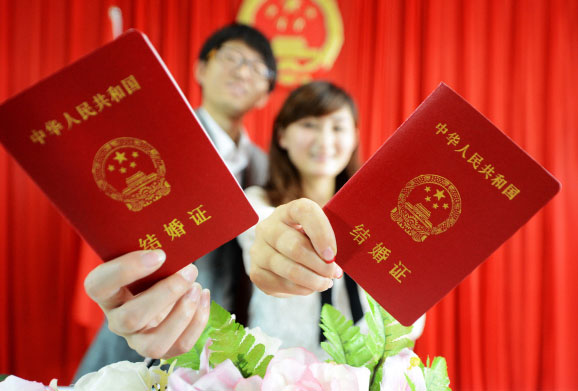
A draft amendment to the population and family planning law is being discussed by the top legislature.
Along with the universal two-child policy, the amendment covers issues including illegal surrogacy and the cancellation of extended leave for older couples who get married or start a family.
CRI's Xie Cheng has more.
According to the law as it stands, citizens of late marriage and late childbirth can have an extension of their marriage and maternity leave.
That means besides the due marriage leave, men over 25 years old and women over 23 enjoy a bonus leave of 10 to 30 days after their marriage.
However, this provision has been removed in the new amendment, sparking widespread public discussion.
"20 days reduced to 3 days, it's a big cut. That means you can't enjoy a honeymoon with your sweetheart."
"Post 90s don't have siblings because of the one-child policy, now they are supposed to enjoy the marriage and childbirth leave but the law removed it. It's so sad."
The amendment does note that couples in line with the childbirth policy can be rewarded an extension of their leave.
Chen Xiqing with the Standing Committee of National People's Congress has this to say:
"I think the word "reward" should be removed, because before the amendment the extension of childbirth leave only applied to some couples. The public were encouraged to have fewer births so they can have a longer leave. Now the amendment applies to all couples, so there is no need for the incentive. If more births are encouraged in the future, it could be revised again."
The amendment has also brought the long-standing problem of illegal surrogacy into the official spotlight, placing a ban on any form of surrogacy.
However, Deng Changyou with the Standing Committee of the NPC has concerns.
"If surrogacy is banned, there will be a problem. If couples or any one of them are infertile, they will become a vulnerable group. The law should take them into account. It's unfair to put a general ban on it. I think it would be better if they are allowed to choose surrogacy when any one of a couple suffers from infertility and has been approved by the authorities.
A report on China's infertility finds the rate increased to 12 percent in 2012 from 3 percent of 1992, which means that about one in eight couples have reproductive problems.